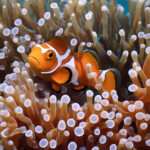The BioFibreLoop Project: Revolutionizing Sustainability in the EU Textile Industry
The textile industry has long been criticized for its environmental impact, from excessive water usage to chemical pollution. However, a groundbreaking project is set to change the game and pave the way for a more sustainable future in the European Union. The BioFibreLoop project is poised to revolutionize the EU textile industry by introducing innovative practices that prioritize sustainability without compromising on quality or efficiency.
One of the key aspects of the BioFibreLoop project is its focus on utilizing bio-based materials. By shifting away from traditional, resource-intensive materials like cotton or polyester, the project aims to reduce the industry’s reliance on non-renewable resources and lower its carbon footprint. Bio-based materials, such as those derived from plant sources like hemp or bamboo, offer a more sustainable alternative that can be produced with minimal environmental impact.
In addition to using bio-based materials, the BioFibreLoop project also emphasizes the importance of circularity in the textile industry. Circular fashion is a growing trend that promotes recycling, reusing, and upcycling materials to minimize waste and reduce the industry’s overall environmental footprint. By implementing circular practices, such as designing garments for disassembly or creating closed-loop recycling systems, the project aims to create a more sustainable and resource-efficient textile industry in the EU.
Furthermore, the BioFibreLoop project is committed to promoting transparency and traceability throughout the supply chain. By leveraging technologies like blockchain and RFID tagging, stakeholders can track the journey of materials from source to production, ensuring that ethical and sustainable practices are upheld at every stage. This level of transparency not only builds consumer trust but also holds industry players accountable for their environmental and social responsibilities.
Moreover, the BioFibreLoop project serves as a catalyst for innovation and collaboration within the EU textile industry. By bringing together researchers, manufacturers, and policymakers, the project fosters a culture of innovation that drives sustainable practices forward. Collaborative efforts, such as developing new recycling technologies or implementing eco-friendly dyeing processes, are key to transforming the industry and setting new sustainability standards for the future.
As the BioFibreLoop project gains momentum, it serves as a beacon of hope for the EU textile industry, showcasing the possibilities of a more sustainable and eco-conscious future. By embracing bio-based materials, circular practices, transparency, and collaboration, the project sets a new standard for sustainability that other industries can look up to and learn from. The days of unsustainable fashion are numbered, and the BioFibreLoop project is leading the way towards a greener, more sustainable future for the EU textile industry.
In conclusion, the BioFibreLoop project is not just a project; it is a movement towards a more sustainable, ethical, and environmentally friendly textile industry in the European Union. By embracing innovation, collaboration, and a commitment to sustainability, the project is reshaping the future of fashion and setting a new standard for industries worldwide to follow suit.
#BioFibreLoop, #SustainableTextiles, #EUTextileIndustry, #CircularFashion, #InnovationInTextiles












